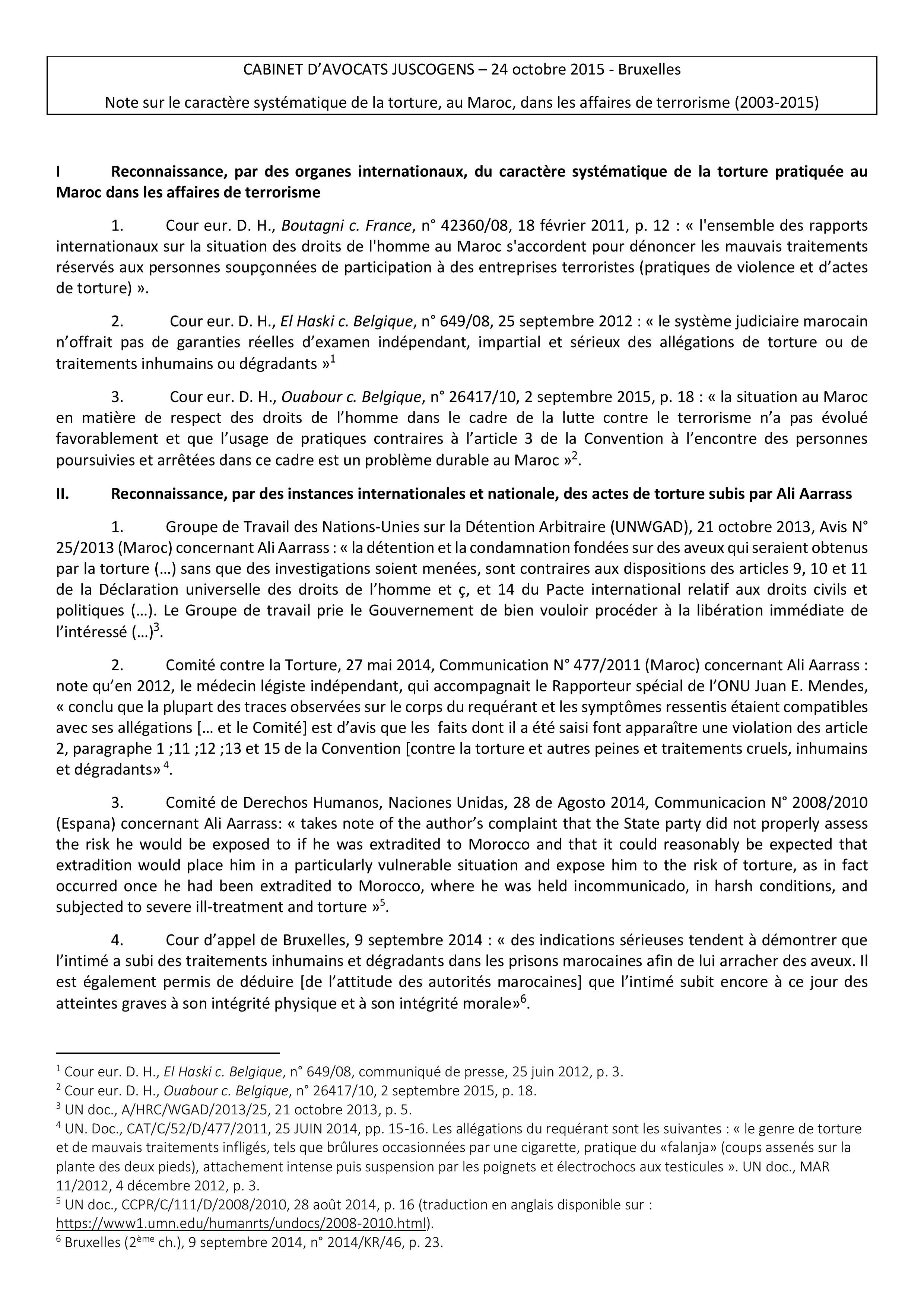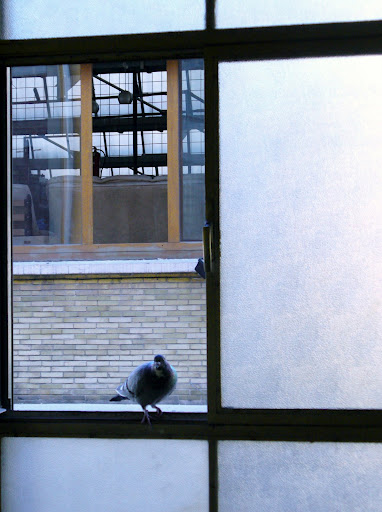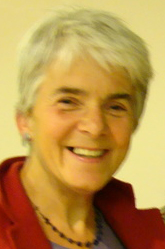2009-07-10 Cageprisoners interview with Farida Aarrass
CP: Could you please introduce yourself to us?
FA: My name is Farida Aarrass. I am the sister of Ali Aarrass. I am a mother of 7 children. I am trying to show the wider world what is going on with my brother and his unjustified detention in Spain.
CP: Tell us bit about your brother… what’s his background?
FA: My brother was born in 1962 in Melilla, a little Spanish enclave in the North of Morocco. Our parents were divorced, so we joined our mother and moved to Belgium. Ali was fifteen then. When he was seventeen, he started working in a meat factory where he boned pork meat. It was a very hard work and at the factory he experienced racism from other workers. After a dispute on a racist insult he couldn’t accept, he was sacked. He then went to work as an ambulant shopkeeper at the market. Later on he started his own stationer’s shop “Nour”, witch means “Light”. From when he was a young kid, he took care for my mother, for my sister and me.
CP : But you said he is now in Spain ?
Ali has lived in Belgium for 28 years. In 2005, when he was 43 years old, he decided to leave Belgium with his wife Houria and to return to Melilla, where our father lived and where they adopted a child, a little girl, as his wife and himself couldn’t have children. He started a cafeteria in Melilla where he served breakfast and sandwiches. Later on he took the job of truck driver from his stepbrother, who couldn’t do the job anymore because he had lost his sight. From then Ali worked as a truck driver to support his family and the family of his stepbrother until the day of his arrest.
It was in 2006 when Ali was arrested for the first time by the Spanish police and released under caution for €24,000. Our father put all his savings together to be able to pay this sum of money. Ali was free, but had to present himself every week to the court since there was an investigation on suspicion of terrorism that was opened against him. In March 2008 the Spanish police arrested him again following an international arrestwarrant from Morocco.
CP: What was the reason for the original arrest… What reasons did they give?
FA: He was arrested because, the Spanish police said, he possessed a weapon, that was part of a set of weapons that was destinated to be smuggled into Morocco. But in May 2009, after two years of investigation against Ali, the Spanish antiterror judge Baltasar Garzon declared a “non-lieu” : there wasn’t any proof concerning the implication of Ali in terrorism. Garzon closed the prosecution in Spain. But by closing the courtcase in Spain, Garzon opened at the same time the possibility for the extradition to Morocco. Garzon declared that he had “no objection” against the extradition of Ali to Morocco to stand there on trial for the same allegations. Nayim Mohamed Ali, the lawyer of Ali, responded to this at a press conference by saying : “Since when a person can be judged twice for the same facts ?”.
CP: Why did Morocco have an international warrant for the arrest of your brother ?
Morocco wants to link Ali to the terrorist bombing attacks in Casablanca in May 2003. So what are we talking about is the incrimination period about the attacks in Casablanca. My brother was in Belgium during those attacks.
According to Amnesty International, after the attacks in Casablanca, some 1500 people have been arrested, hundreds of them have been severely tortured. In March 2009 my brother went on hungerstrike for two months to claim his innocence and to obtain some attention from the public for his case. Morocco accuses him also for being a member of the Movement of Moudjahidin from Morocco since 1982. I don’t know what my brother answers to this accusation, but for me all of this is absurd.
CP: Can I ask what nationality your brother is?
FA: Ali obtained Belgian nationality in 1989. So he has double-nationality from Belgium and Morocco. In 1993 he did his military service in Belgium for 12 months.
CP: What kind of conditions is he being detained in at the moment in Spain?
FA: He has been in isolation first in a prison in Madrid, then in Badajoz and now in the Botafuegos prison in Algeciras. He is in a “high security regime” reserved for people suspected of terrorism.
CP: Can you tell us a little about Ali’s personality? What kind of person is he?
FA: For me he was my older brother and at the same time he had the responsibility of a father towards my sister and me. He worked hard to make my mother stop working. He was a very sensitive person and extremely generous. When my mother said to him : “Son, I wonder why you own a shop, you never have a dime to spare..” Then he said : “I don’t want any material belongings in this world. I hope to have my little place in Paradise where life is eternal. By doing good here, I hope I will succeed, Incha Allah”. When a new school year began, he lowered the prices for the books of the kids so that the families, especially the kids of the poor families, could all buy what they needed. He wasn’t interested in profit. He was very well known amongst the population in Brussels.
CP: What kind of legal or other challenges have been made to his situation?
FA: The situation is very difficult – there are no real legal bases for his continued detention.
There is a broad coalition in the making that opposes itself to the extradition of Ali and another similar case. The president of Melilla, Juan José Imbroda, and his local governement, lead by the Partido Popular (PP), the Coalition for Melilla (CPM, the most important party of the opposition), the Islamic Commission for Melilla, the Association « Inter Culture » and Amnesty International from Spain united themselves against his extradition. Abderraman Benyahya, the spokesperson of the Islamic Commission, declared that the Spanish autorities never would have accepted the extradition « if the accused hadn’t been muslim ». It is clear that there is a criminalisation of Muslims going on. During its detention they even went so far as asking him why he possesses the Qur’an.
Eva Suárez-Llanos, the Spanish president of Amnesty International said :“The Spanish autorities can not extradite people in detention to a country where they risk to be tortured ». Before the court, Ali has claimed his Belgian nationality to prevent its extradition, but the court refused this argument. Until now, the Belgian government didn’t intervene to help its citizen.
CP: How has this impacted the family, this detention?
FA: His arrest was a terrible shock for the whole family. We are living in a state of total incomprehension. His wife and child are separated from their husband and father. His wife has no income at all. My father is worried to death they will extradite his son. And my mother has become more and more fragile and silent. And me, every time I imagine him between those four walls, I start crying, I can’t bear the image.
CP: What kind of message would you like to give the public?
FA: Hope is the only thing that is left. I hope the competent authorities will realise that my brother is an innocent man and that his place is amongst the members of his family. I hope they don’t consider being generous, dynamic, joyful, and most of all being a Muslim as a crime. I appeal for respect and I appeal for peace.
CP: Thank you for speaking to us.
You can write to Ali at the following address :
Ali Aarrass (modulo 15)
Centro penitenciario de Algeciras
Ctra del Cobre, km.4.5
C.P 11206 Algeciras
Bota fuego






